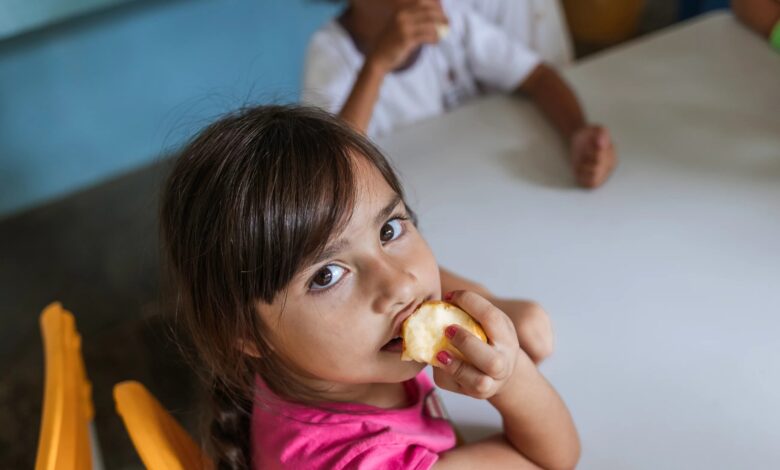
A student at Professor Lourdes Heredia Mello Municipal School in São Paulo enjoys an apple for dessert after lunch. Photo Credit: Tuane Fernandes for NPR
Society BrazilReducing Hunger, One Free Meal at a Time
By keeping around 40 million kids nourished and engaged through free meals in all of Brazil’s public schools, the government is effectively reducing hunger across the board.
“One indicator of food insecurity is who in the family is served at mealtime first,” explains Walter Belik, professor of agricultural economics at the State University of Campinas and former member of Brazil’s National Food and Nutrition Security Council. “When children go to school and [adults] know they’ll eat well there, [the adults] don’t have to worry as much. So, school meals reduce hunger not just for kids but for adults, too.”
Children are fed across Brazil’s 5,570 municipalities from daycare through high school. Brazil’s National School Feeding Program provides economic opportunities for farmers and employment for parents while ensuring that children are nourished and educated. It is one of the world’s largest school meals programs, one that is embedded in the country’s constitution as part of the national strategy to combat hunger. In 2023, Brazilian President Luiz Inácio Lula da Silva announced the Brazil Without Hunger Plan, which includes boosting incomes through an updated social welfare program, increasing the national minimum wage, and providing professional training. The School Feeding Program remains at the forefront of efforts to improve food security.



